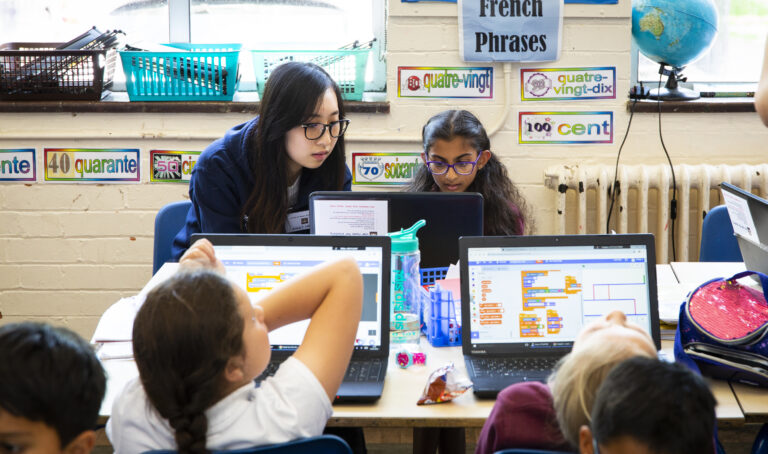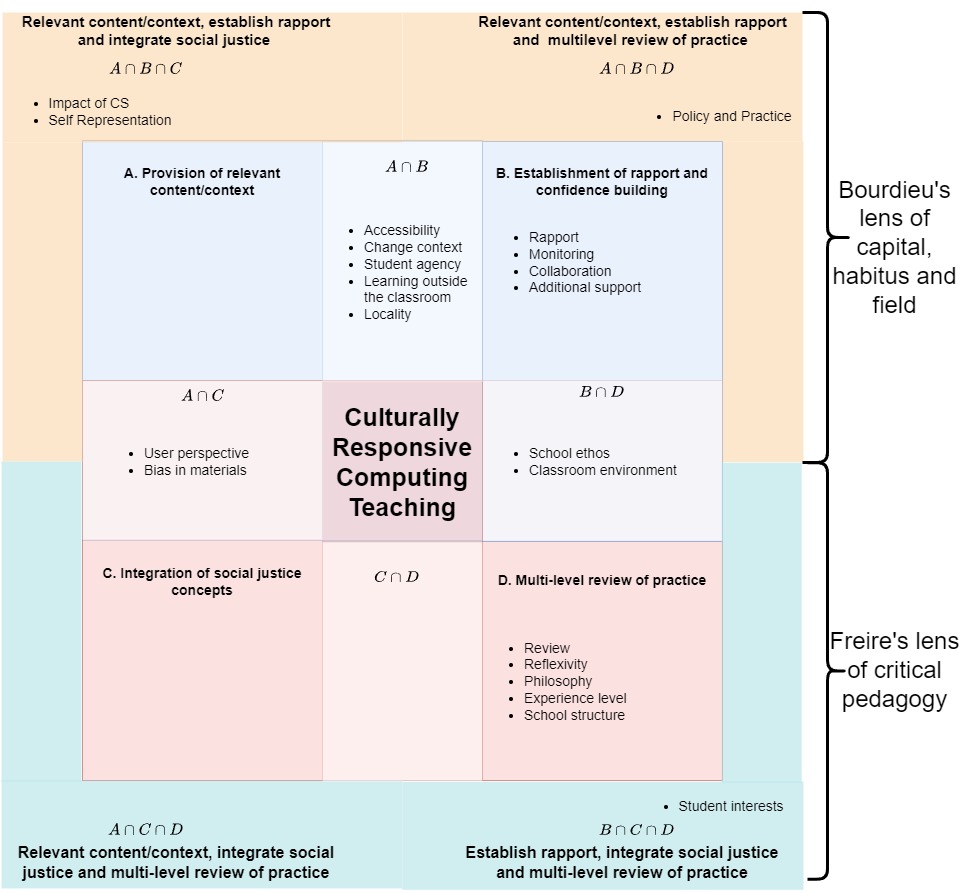We’re presenting at ICER!
We are excited to be presenting our research at ICER, the 19th ACM Conference on International Computing Education Research, on 9th August this year. Our paper, “Using a sociological lens to investigate computing teachers’ culturally responsive classroom practices”, by Yujeong Hwang, Anjali Das, Jane Waite and myself, is the first academic paper to be published from a Google-funded project that we carried out in 2022. The focus of the project was to investigate how teachers could develop, or already were practising, culturally responsive computing teaching in UK schools. This paper reports on the first part of the project, where we looked at teachers’ existing practice through two sociological lenses: the work of Bourdieu around social stratification and that of Freire relating to critical pedagogy and reflexivity.
Our work on culturally responsive teaching started in 2021 with the development of guidelines for schools drawn up by teachers who were part of a working group. We have learned a lot since then through working with teachers and schools, and have reflected in the paper on the difference between the UK context in which we work and other work on culturally relevant pedagogy and culturally responsive teaching that primarily derives from the US. Although both are affluent countries in the global north, our social histories and identities are very different. Britain has a history of slavery and colonisation that has created a dominant political and societal narrative, including wholesale expropriation of wealth from colonised nations. Many factors, including political changes and social responses, have contributed to an education system that encourages children to learn about the British Empire without critically evaluating the problems that colonisation caused.

Our study used qualitative research and involved working with a small number of schools over six months. To support teachers, we developed a framework of ten areas of opportunity that teachers could consider when deciding how their practice was already or could become culturally responsive. The research was primarily centred around two workshops held in schools with participating teachers. During the first workshop, which was the focus of our ICER paper, teachers worked with researchers to reflect on their current practice using the framework and planned small interventions for their classroom teaching over the coming months.
Through the analysis of the first workshop’s transcripts, we were able to develop four global themes that represent the teachers’ experiences. These themes indicate four ways in which schools can develop culturally responsive computing teaching:
A) provision of relevant context and content;
B) establishment of rapport and confidence building;
C) integration of social justice into the computing curriculum; and
D) a multi-level review of practice.
These themes align with Bourdieu’s concepts of capital, habitus and field (Themes A and B), and Freire’s critical pedagogy and reflexivity (Themes C and D).
Theme A includes practices that provide relevant contexts and examples, such as matching to student interests and relating to the locality that students live in, that are used to situate teaching activities and what content is taught, such as about social justice or user experience design. Theme B relates to building rapport with students and building student confidence, for example, through providing additional support, collaboration, adapting the classroom environment and generally building rapport. Theme C is the area that was least evident in our study. However some of the teachers voiced their desire to incorporate social justice in computing, and some had implemented such content in lessons, although teachers reflected that this posed several significant challenges in their school context. Finally, Theme D relates to Freire’s ideas of reflexivity, in that all teachers were periodically reviewing their work and instructional approaches, either with their colleagues or by themselves. Our take-away is that the teachers in our study found it difficult to critically address social justice issues in the computing classroom, for a variety of reasons which we explore in the paper.

Yujeong (Alyson) and Anjali have recently left their university posts so Jane and I will be presenting the paper. Our work on this paper would not have been possible without the contributions made by Lynda Chinaka, Saman Rizvi, Katharine Childs, Polly Card, Hayley Leonard, and anyone I’ve forgotten! We are thrilled to be able to present this work to an international audience. The full paper will be available to download and read from 8th August. Thanks to Google for funding the project.